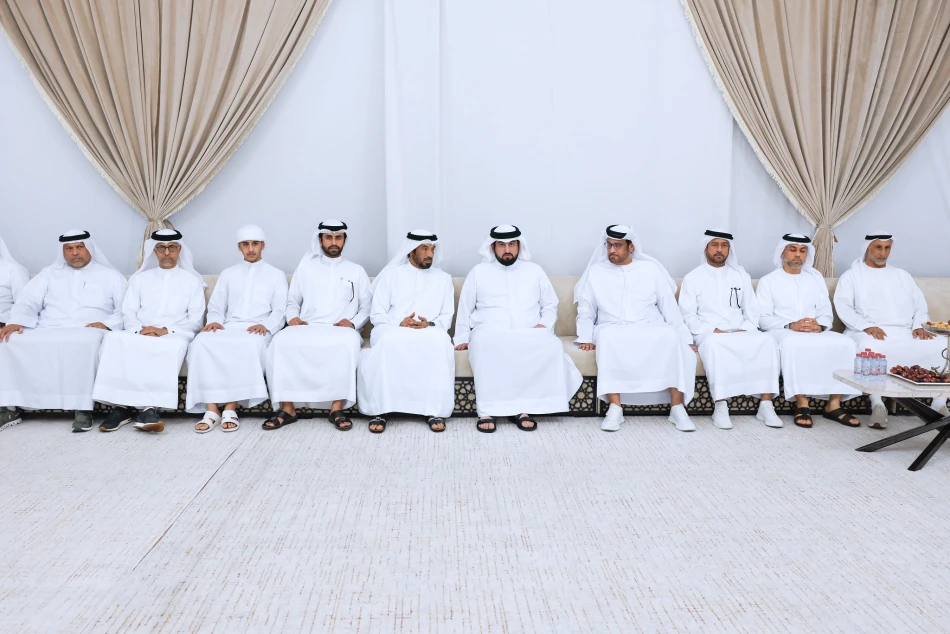
Ahmed bin Mohammed Offers Condolences on the Passing of Ibrahim Issa Buhaid
Dubai's Deputy Ruler Pays Respects in Traditional Condolence Visit
Sheikh Ahmed bin Mohammed bin Rashid Al Maktoum, Dubai's Second Deputy Ruler, conducted a formal condolence visit on Sunday to honor the passing of Ibrahim Issa Bu Hamid, demonstrating the emirate's continued adherence to traditional customs of respect and community solidarity amid its rapid modernization.
Royal Protocol Maintains Cultural Traditions
The visit to the mourning majlis in Dubai reflects the UAE leadership's commitment to maintaining personal connections with citizens and residents, even as the country positions itself as a global business hub. Such ceremonial visits underscore the balance Dubai's ruling family strikes between embracing international commerce and preserving Emirati cultural values.
During the visit, Sheikh Ahmed expressed his sincere condolences to the deceased's family, offering prayers that Ibrahim Issa Bu Hamid be granted divine mercy and eternal peace, while asking for patience and comfort for the bereaved family members.
Significance Beyond Ceremony
Leadership Accessibility in the Modern UAE
These personal condolence visits by senior royals serve multiple purposes in UAE society. They reinforce the traditional majlis system where leaders remain accessible to citizens, a practice that has helped maintain social cohesion as the Emirates rapidly transformed from a collection of trading ports to a major international financial center.
For investors and international observers, such displays of cultural continuity signal political stability and social harmony—factors that contribute to Dubai's attractiveness as a business destination. The consistency of these traditions provides reassurance that rapid economic development hasn't eroded the social fabric that underpins the emirate's governance model.
Cultural Diplomacy in Action
The formal nature of these visits also demonstrates soft power projection, showing how traditional Arab hospitality and respect customs remain integral to leadership in one of the region's most cosmopolitan cities. This approach contrasts with more distant governance styles seen in other rapidly developing economies, potentially contributing to the UAE's reputation for stability and cultural authenticity despite its international outlook.
Such gestures reinforce why Dubai continues to attract long-term investment and expatriate residents who value both economic opportunity and social stability—a combination that has proven increasingly rare in many global financial centers.
Most Viewed News

 Sara Khaled
Sara Khaled






